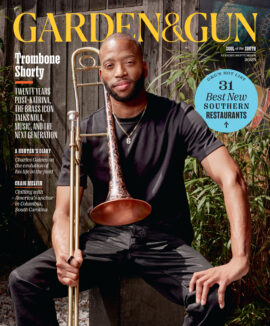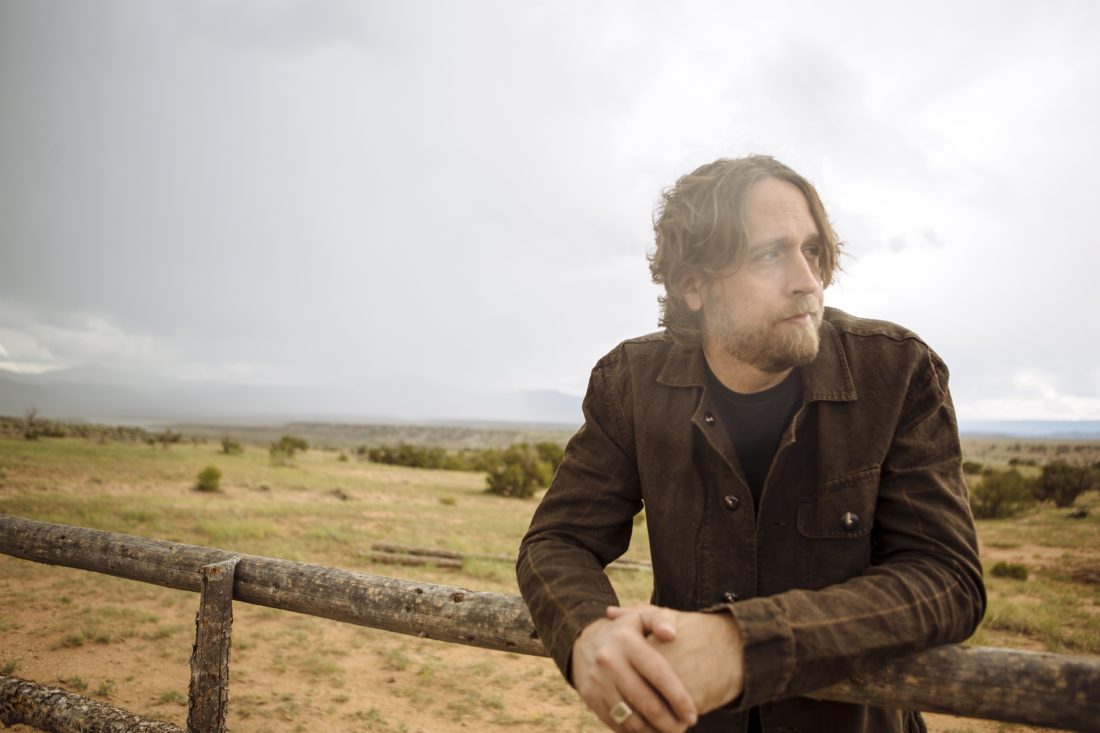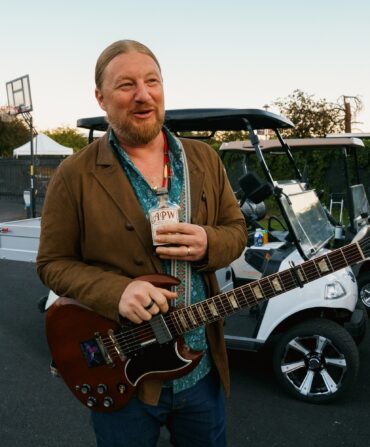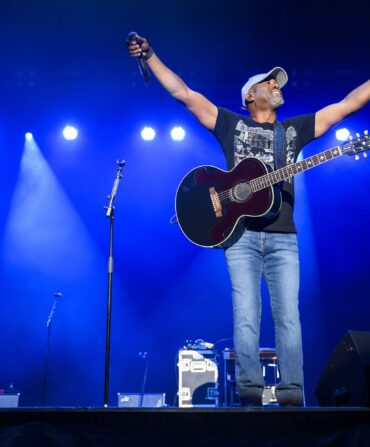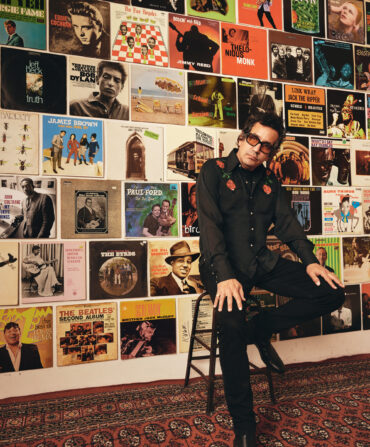The Lone Star State’s long list of songwriting heavyweights isn’t lost on Hayes Carll. “I didn’t know how they did it, but songwriters were always there and they were abundant, everywhere I looked,” says the Houston-born musician, crediting larger-than-life Texans like Willie Nelson, Kris Kristofferson, and Townes Van Zandt for showing him the way. “I’m blown away by people who can write one great line,” he says. “When you put twenty of them in a song, that’s otherworldly.”
Over the course of almost two decades and five albums, the forty-three-year-old songwriter has gained a reputation for his own way with words, as his straight-talking lyrics and wry delivery have garnered nods from the Grammys and Americana Music Awards. On his sixth album What It Is, out this month, Carll mines decidedly Southern references, from an argument over haint blue ceilings on opener “None Ya” to a search for redemption via George Dickel on the poignant “Jesus and Elvis.” Current affairs get their due, too. “Times Like These” laments a culture of divisiveness (“In times like these everyone could use a hand / Instead we stand around losing ground fighting o’er the promised land”), while “American Dream” describes visions of hope and hardship. But even as Carll takes on society’s shortcomings, he has a relatable, self-deprecating knack for making light of his own—it’s one of the reasons he’s built such a devoted fanbase.
In anticipation of the new release, G&G caught up with Carll to talk about What It Is, his Texas roots, and how music continues to surprise him—as an artist and as a listener. What It Is is available now, and Carll’s spring tour has dates all across the South.
You’re from Houston. Is there any part of your work as a songwriter that you feel you owe to where or how you were raised?
Growing up in Texas, it’s just sort of in the air—one of my first memories is hearing Willie Nelson on the radio. There is such a history of songwriters and musicians coming out of Texas, and they’re so well supported here: by venues, by radio stations, by fans. If anything, being from here kind of gave me the sense that pursuing music—even if it wasn’t a “viable profession”—was at least something that people admired and respected. Growing up in the suburbs, the life of Willie Nelson or Jerry Jeff Walker or Kris Kristofferson seemed really appealing to me, and I was drawn to this other world they presented through their lyrics and the lives they lived.
You wrote several songs on the album with your fiancée, Allison Moorer. What is that creative partnership like, and what effect has it had on your songwriting?
She’s my first reader, my first listener, and the person I talk to about my ideas, my dreams and my ambitions, where I want to go, and what I want to do—not just personally, but creatively. She’s an artist that I respect immensely, not only for her talent and her skill sets, but for her work ethic. Watching her has been really informative for me. To have somebody you’re that close to, who you can bounce ideas off of, get constructive criticism from, and collaborate with, is incredible. I get to do the thing that I love with the person that I love, and I’m lucky for that.
“American Dream,” one you wrote with Allison, describes rural, picturesque scenes of the South alongside bleak and desolate ones. What made you want to write about the American dream that way?
It took Allison and me a long time to finish that song. Was it about the American dream, or one individual’s [idea of it]? It ended up being something in between, with five vignettes of different dreams—whether it’s picking flowers for your date’s mother in a rural Americana scene, or a travelogue through the Devil’s Backbone and Purgatory Road, with ghost stories and historical references. The American dream is and has been different for different people, but there are some human emotions and traits that are, for better or worse, timeless. Greed is one of those, and quests for glory and love are as well. They are the engines that keep most people moving, and America personifies that. That’s where that line comes in—”Nothing changes, even if it wants to.”
You two also co-wrote a song with Matraca Berg called “Jesus and Elvis…”
Matraca had the song title, and it reminded me of a bar that I used to hang out at in Austin. It had Christmas lights up year-round and a jukebox in the corner, with nothing on it past 1968. The story I’d hear—I don’t know that it’s actually true, but that didn’t stop us—was that the owner had a son who had gone to Vietnam around Christmas time, and that she promised she wouldn’t take the lights down until he made it back home. All these years later, the lights are still up. When Matraca mentioned that title idea—”Jesus and Elvis”—that story popped into my head. All we had to do was write it.
What’s one thing that has surprised you recently, music-wise?
I just saw a performance of the other night by Gregory Alan Isakov, and the experience was something you could just get lost in. He creates so much space, on the stage and on his records, to let his emotions and what he’s saying come through, but also to let you feel your own feelings, too. I tend to want to fill up every bit of space—in life, and in my music. Watching what can happen when you leave room for the listener… It sounds corny, but that’s something I want to watch and learn from. I admire a lot about what he does. I believe he’s a farmer in addition to being a musician. The idea of that, having another job, seems crazy to me, but a lot of musicians have a tactile, manual thing they can engage with—I mean, Guy Clark built guitars. It seems like a good way to balance it out.
Do you have a hobby like that?
Nah, I’m still lookin’. [Laughs] I used to play a lot of sports, but I seem to injure myself every time I try these days.

